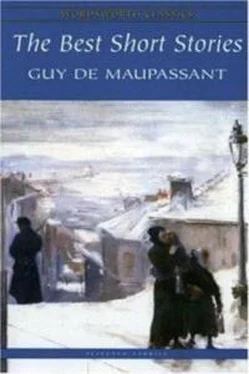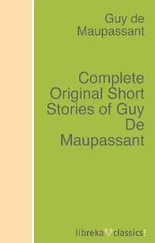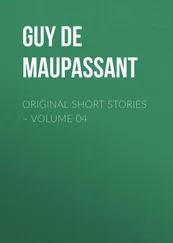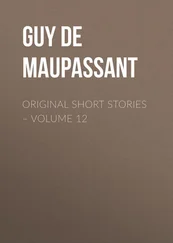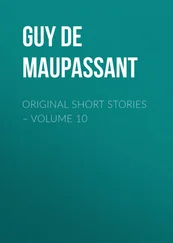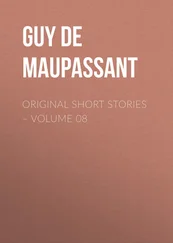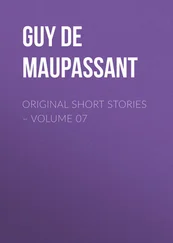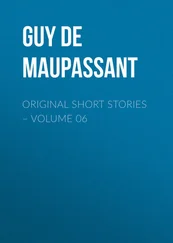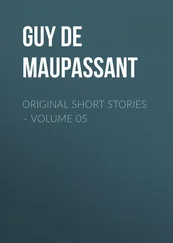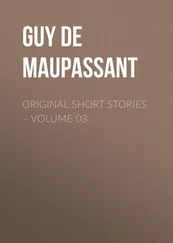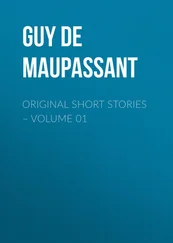The jolting of the wagon made them wag their heads and the shaking of the wheels seemed to stupefy them—they all looked as though they were asleep.
The young woman remained motionless.
"Why didn't he come inside with me?" she was saying to herself. An unaccountable sadness seemed to be hanging over her. He really need not have acted so.
The sisters motioned to the conductor to stop, and they got off one after the other, leaving in their wake the pungent smell of camphor. The bus started tip and soon stopped again. And in got a cook, red–faced and out of breath. She sat down and placed her basket of provisions on her knees. A strong odor of dish–water filled the vehicle.
"It's further than I imagined," thought Jeanne.
The undertaker went out, and was replaced by a coachman who seemed to bring the atmosphere of the stable with him. The young girl had as a successor a messenger, the odor of whose feet showed that he was continually walking.
The lawyer's wife began to feel ill at ease, nauseated, ready to cry without knowing why.
Other persons left and others entered. The stage went on through interminable streets, stopping at stations and starting again.
"How far it is!" thought Jeanne. "I hope he hasn't gone to sleep! He has been so tired the last few days."
Little by little all the passengers left. She was left alone, all alone. The conductor cried:
"Vaugirard!"
Seeing that she did not move, he repeated:
"Vaugirard!"
She looked at him, understanding that he was speaking to her, as there was no one else there. For the third time the man said:
"Vaugirard!"
Then she asked:
"Where are we?"
He answered gruffly:
"We're at Vaugirard, of course! I have been yelling it for the last half hour!"
"Is it far from the Boulevard?" she said.
"Which boulevard?"
"The Boulevard des Italiens."
"We passed that a long time ago!"
"Would you mind telling my husband?"
"Your husband! Where is he?"
"On the top of the bus."
"On the top! There hasn't been anybody there for a long time."
She started, terrified.
"What? That's impossible! He got on with me. Look well! He must be there."
The conductor was becoming uncivil:
"Come on, little one, you've talked enough! You can find ten men for every one that you lose. Now run along. You'll find another one somewhere."
Tears were coming to her eyes. She insisted:
"But, monsieur, you are mistaken; I assure you that you must be mistaken. He had a big portfolio under his arm."
The man began to laugh:
"A big portfolio! Oh, yes! He got off at the Madeleine. He got rid of you, all right! Ha! ha! ha!"
The stage had stopped. She got out and, in spite of herself, she looked up instinctively to the roof of the bus. It was absolutely deserted.
Then she began to cry, and, without thinking that anybody was listening or watching her, she said out loud:
"What is going to become of me?"
An inspector approached:
"What's the matter?"
The conductor answered, in a bantering tone of voice:
"It's a lady who got left by her husband during the trip."
The other continued:
"Oh! that's nothing. You go about your business."
Then he turned on his heels and walked away.
She began to walk straight ahead, too bewildered, too crazed even to understand what had happened to her. Where was she to go? What could she do? What could have happened to him? How could he have made such a mistake? How could he have been so forgetful?
She had two francs in her pocket. To whom could she go? Suddenly she remembered her cousin Barral, one of the assistants in the offices of the Ministry of the Navy.
She had just enough to pay for a cab. She drove to his house. He met her just as he was leaving for his office. He was carrying a large portfolio under his arm, just like Lebrument.
She jumped out of the carriage.
"Henry!" she cried.
He stopped, astonished:
"Jeanne! Here—all alone! What are you doing? Where have you come from?"
Her eyes full of tears, she stammered:
"My husband has just got lost!"
"Lost! Where?"
"On an omnibus."
"On an omnibus?"
Weeping, she told him her whole adventure.
He listened, thought, and then asked:
"Was his mind clear this morning?"
"Yes."
"Good. Did he have much money with him?"
"Yes, he was carrying my dowry."
"Your dowry! The whole of it?"
"The whole of it—in order to pay for the practice which he bought."
"Well, my dear cousin, by this time your husband must be well on his way to Belgium."
She could not understand. She kept repeating:
"My husband—you say—"
"I say that he has disappeared with your—your capital—that's all!"
She stood there, a prey to conflicting emotions, sobbing.
"Then he is—he is—he is a villain!"
And, faint from excitement, she leaned her head on her cousin's shoulder and wept.
As people were stopping to look at them, he pushed her gently into the vestibule of his house, and, supporting her with his arm around her waist, he led her up the stairs, and as his astonished servant opened the door, he ordered:
"Sophie, run to the restaurant and get a luncheon for two. I am not going to the office to–day."
The Diary of a Madman
He was dead—the head of a high tribunal, the upright magistrate whose irreproachable life was a proverb in all the courts of France. Advocates, young counsellors, judges had greeted him at sight of his large, thin, pale face lighted up by two sparkling deep–set eyes, bowing low in token of respect.
He had passed his life in pursuing crime and in protecting the weak. Swindlers and murderers had no more redoubtable enemy, for he seemed to read the most secret thoughts of their minds.
He was dead, now, at the age of eighty–two, honored by the homage and followed by the regrets of a whole people. Soldiers in red trousers had escorted him to the tomb and men in white cravats had spoken words and shed tears that seemed to be sincere beside his grave.
But here is the strange paper found by the dismayed notary in the desk where he had kept the records of great criminals! It was entitled: WHY?
20th June, 1851. I have just left court. I have condemned Blondel to death! Now, why did this man kill his five children? Frequently one meets with people to whom the destruction of life is a pleasure. Yes, yes, it should be a pleasure, the greatest of all, perhaps, for is not killing the next thing to creating? To make and to destroy! These two words contain the history of the universe, all the history of worlds, all that is, all! Why is it not intoxicating to kill?
25th June. To think that a being is there who lives, who walks, who runs. A being? What is a being? That animated thing, that bears in it the principle of motion and a will ruling that motion. It is attached to nothing, this thing. Its feet do not belong to the ground. It is a grain of life that moves on the earth, and this grain of life, coming I know not whence, one can destroy at one's will. Then nothing—nothing more. It perishes, it is finished.
26th June. Why then is it a crime to kill? Yes, why? On the contrary, it is the law of nature. The mission of every being is to kill; he kills to live, and he kills to kill. The beast kills without ceasing, all day, every instant of his existence. Man kills without ceasing, to nourish himself; but since he needs, besides, to kill for pleasure, he has invented hunting! The child kills the insects he finds, the little birds, all the little animals that come in his way. But this does not suffice for the irresistible need to massacre that is in us. It is not enough to kill beasts; we must kill man too. Long ago this need was satisfied by human sacrifices. Now the requirements of social life have made murder a crime. We condemn and punish the assassin! But as we cannot live without yielding to this natural and imperious instinct of death, we relieve ourselves, from time to time, by wars. Then a whole nation slaughters another nation. It is a feast of blood, a feast that maddens armies and that intoxicates civilians, women and children, who read, by lamplight at night, the feverish story of massacre.
Читать дальше
